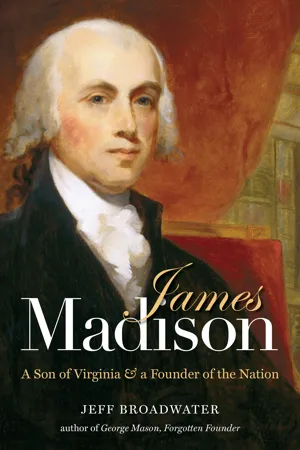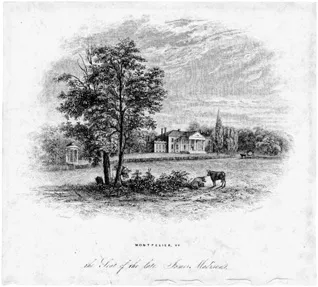
- 288 pages
- English
- ePUB (mobile friendly)
- Available on iOS & Android
About This Book
James Madison is remembered primarily as a systematic political theorist, but this bookish and unassuming man was also a practical politician who strove for balance in an age of revolution. In this biography, Jeff Broadwater focuses on Madison's role in the battle for religious freedom in Virginia, his contributions to the adoption of the Constitution and the Bill of Rights, his place in the evolution of the party system, his relationship with Dolley Madison, his performance as a wartime commander in chief, and his views on slavery. From Broadwater's perspective, no single figure can tell us more about the origins of the American republic than our fourth president.
In these pages, Madison emerges as a remarkably resilient politician, an unlikely wartime leader who survived repeated setbacks in the War of 1812 with his popularity intact. Yet Broadwater shows that despite his keen intelligence, the more Madison thought about one issue, race, the more muddled his thinking became, and his conviction that white prejudices were intractable prevented him from fully grappling with the dilemma of American slavery.
Frequently asked questions
Information
{ CHAPTER ONE }
Religion and Revolution

Table of contents
- Cover Page
- James Madison
- Copyright Page
- Dedication
- Contents
- Illustrations
- Preface
- { CHAPTER ONE } Religion and Revolution
- { CHAPTER TWO } A Republican Constitution
- { CHAPTER THREE } From Ratification to the Bill of Rights
- { CHAPTER FOUR } The Origins of the Party System
- { CHAPTER FIVE } The Politics of Charm and the Limits of Diplomacy
- { CHAPTER SIX } A Founder as Commander in Chief
- { CHAPTER SEVEN } Slavery, Sectionalism, and the Decline of the Old Dominion
- Notes
- Bibliography
- Index